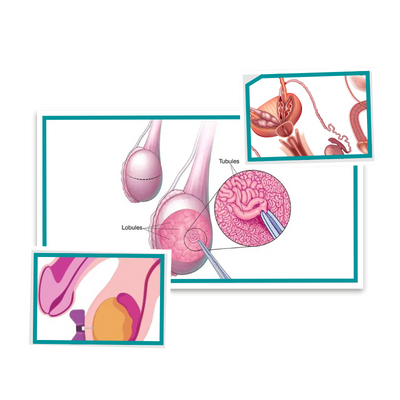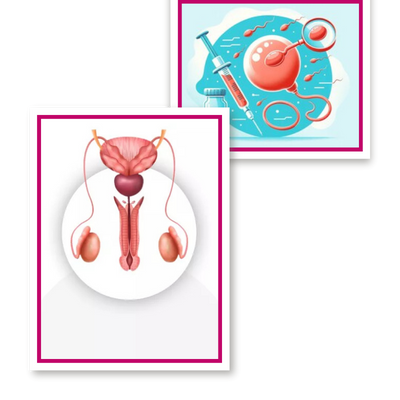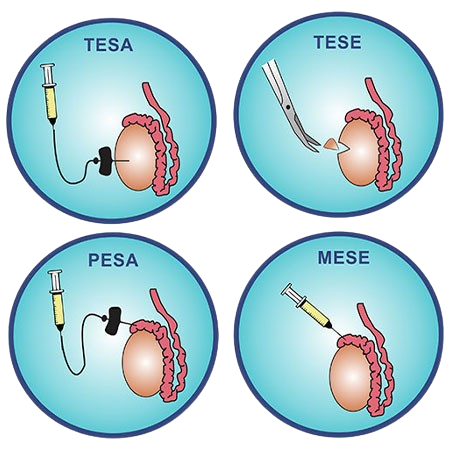Microscopic testicular sperm extraction (Micro-TESE) is a surgical technique employed to extract sperm from the seminiferous tubules within a man's testes. It is specifically applied for individuals experiencing non-obstructive azoospermia, a condition wherein a man is unable to generate adequate sperm count for detection in his seminal fluid, often a prevalent factor contributing to male infertility.

This procedure is recommended in cases where there is no presence of sperm in the ejaculate, or when the quantity
and/or quality of sperm is insufficient to attempt assisted reproductive techniques with a chance of success.
Physicians typically advise Micro TESE surgery under the following circumstances:


Micro TESE is a special method that's really good at finding healthy sperm compared to just taking a sample randomly. There's more than a 60% chance of finding sperm using micro TESE. Plus, it's best to do micro TESE on the same day as getting eggs, so the sperm can be used right away without needing to be frozen first, which helps keep the quality high.

Micro TESE is a tricky operation that blends microsurgery skills with knowing how the testicles work. By using a special microscope and carefully dissecting the testicular tubules, along with skilled embryologists, it ensures that the testicles aren't harmed during the process.
Micro TESE is typically recommended for men with non-obstructive azoospermia, where the cause of sperm absence is unknown or related to testicular failure. It may also be recommended for men who have had unsuccessful sperm retrieval with a previous TESE procedure.
We perform the surgery while you're under general anesthesia, so you won't feel any pain during it. Afterward, you might feel discomfort and pressure around the surgery area, especially when you walk or do physical activities. But you shouldn't have severe pain. Resting, applying cold packs to the scrotum, and taking pain relievers occasionally can help relieve these symptoms.
As with any surgical procedure, there is a risk of bleeding, infection, and pain. Additionally, there is a small chance that micro TESE may result in damage to the testicles, leading to decreased sperm production or testicular injury. It is important to discuss the potential risks and benefits with a fertility specialist before undergoing micro TESE.
After the surgery, you'll need to rest for a week. Avoid strenuous activities or sports for four weeks after the surgery. You'll also need to come to the clinic for a check-up one to two days after the surgery.
The Micro-TESE surgery happens in the clinic, not the hospital. It takes around 1.5 to 3 hours. Afterward, you can go home about 4 hours later. But remember, don't drive or do anything that needs focus for 24 hours after the surgery because of the anesthesia.
Before undergoing the process of testicular sperm extraction Micro-TESE, you should-
